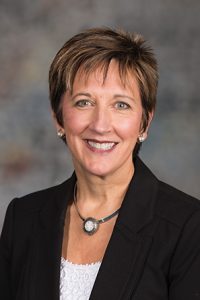Public health task force proposed for Whiteclay
A bill heard by the Legislature’s Executive Board Feb. 2 proposed a special task force that would research the public health implications of alcohol sales on the Whiteclay community.

The unincorporated village of Whiteclay, NE is home to four liquor stores despite having a population of only 11 people. Although alcohol is banned on the Pine Ridge Reservation, a large number of tribal members travel the two miles across the South Dakota border to patronize Whiteclay’s liquor stores.
High rates of alcoholism, fetal alcohol syndrome and poverty among members of Pine Ridge have combined to create a public health emergency, said Lincoln Sen. Patty Pansing Brooks.
She introduced LB407 to examine the impact of alcohol sales in Whiteclay and its surrounding communities and make recommendations to the Legislature on how to solve the economic and social issues facing the area.
Pansing Brooks said the four stores in Whiteclay sell 3.5 million cans of high-alcohol malt liquor annually. Inaction by the state is affecting people of all ages, she said, adding that 25 percent of all babies born on the reservation suffer from fetal alcohol syndrome.
“Both our actions and inactions in Nebraska are having devastating effects on the people of Pine Ridge, where there is an alcoholism rate of almost 80 percent,” she said. “[LB407] is an effort to compassionately deal with the people affected by the predatory sale of alcohol near Whiteclay.”
The task force’s executive committee would include five voting members: the chairpersons of the State-Tribal Relations and Health and Human Services Committees, an at-large member from the University of Nebraska Medical Center (UNMC) and two at-large members appointed by the Executive Board.
Additional non-voting, ex officio members also would include the chief executive officer of the state Department of Health and Human Services, executive director of the Nebraska Commission on Indian Affairs, executive director of the state Department of Economic Development, a public health expert and a UNMC data analysis expert.
Members of the task force would collect, examine and analyze data on fetal alcohol syndrome rates, access to treatment services and the risk of alcoholism for children raised in the area.
Judi gaiashkibos, executive director of the Nebraska Commission on Indian Affairs, testified in support of the bill. She said alcohol-related problems have plagued Pine Ridge members for 100 years.
“This won’t repair the historic damage and stop the fetal alcohol babies being born in the future” she said. “[However,] LB407 has a broader vision of making positive changes for those impacted at Whiteclay.”
Fernando Wilson, an Omaha public health researcher, also supported the bill. He said feasible solutions are needed to address the public health emergency in Whiteclay.
“I believe that the establishment of this task force will help identify specific, high-impact solutions and identify policies, programs and interventions that will address the long-standing issues that comprise this problem,” Wilson said.
The task force would publish three annual reports containing recommendations for future legislative action, incorporating input from medical experts, nonprofit organizations, faith-based institutions and local and tribal governments. The report would be due no later than Dec. 15 each year beginning this year. The task force would be disbanded after the publication of its final report in 2019.
No one testified in opposition to the bill and the committee took no immediate action on it.


